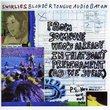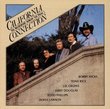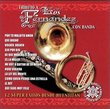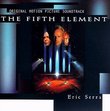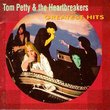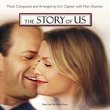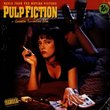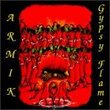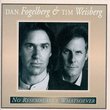| All Artists: Tony Rice Title: Tony Rice Members Wishing: 2 Total Copies: 0 Label: Rounder / Umgd Release Date: 10/25/1990 Genres: Country, Folk, Pop Styles: Bluegrass, Classic Country, Contemporary Folk Number of Discs: 1 SwapaCD Credits: 1 UPCs: 011661008526, 011661008519, 011661008540 |
Search - Tony Rice :: Tony Rice
 | Tony Rice Tony Rice Genres: Country, Folk, Pop
No Description Available. Genre: Country & Western Media Format: Compact Disk Rating: Release Date: 1-MAR-1991 |
Larger Image |
CD DetailsSynopsis
Product Description No Description Available. Genre: Country & Western Media Format: Compact Disk Rating: Release Date: 1-MAR-1991 Similar CDs
Similarly Requested CDs
|
CD ReviewsThe South's secret weapon 08/24/1998 (4 out of 5 stars) "A Civil War tradition of playing music back and forth across night-filled encampments only needed a Tony Rice to totally occupy both sides with the power of music, and make them forget why they were really there. Rice's guitar and voice present themselves in seamless cooperation, leaving the bluegrass fan with a desire to hear more. Lovers of acoustic guitar will find an aggressive outrushing of phrases that just feels right. There's a spontaneous tonality of voice and guitar, along with merciless backhanded replies from the other instruments in the band. You'll want to replay your favorite parts several times at a shot...just to believe you weren't hearing things. Some of Rice's other albums have more angry licks and pyrotechnics, but for a good mix of that voice and the all-around killer acoustics, this album is a keeper." You never forget your first time... frankp93 | Danbury, Connecticut United States | 10/10/2003 (5 out of 5 stars) "This was the first Tony Rice album I picked up back in '77 (didn't know his name, but something about the juxtaposition of that polyester shirt and the old Martin told me this could be interesting). Shortly afterwards I got the first Grisman Quintet album (that shirt again!) and I've been a fan ever since. A lot of people regard "Manzanita" as Rice's high point of this period, but I never found that record nearly as satisfying as this one. "Rattlesnake" was the first Grisman tune I'd ever heard Tony play and it opened a door in my own playing. I'd heard "Plastic Banana" from the well-known Great American Music Band tape, but Rice seemed to reinvent the tune in such an effortless way. I'll admit I was first attracted to this stuff as a guitar player and wasn't that into ballads and the whole southern ethos, but "Hills Of Roane County" just floored me. To this day I find myself playing "Temperance Reel" and "Banana" and thinking of this record. For tone and timing, and just a sense of ease in playing, for all the complexity of his later Unit work, this record is still a sentimental favorite."
|

 Track Listings (12) - Disc #1
Track Listings (12) - Disc #1
